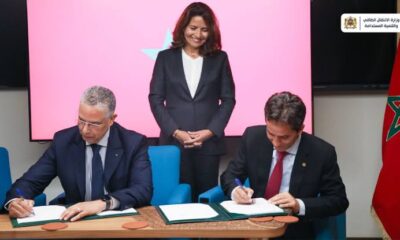A Federal High Court sitting in Lagos, yesterday, dismissed the suit by Shell Nigeria Exploration and Production Company Limited, challenging the imposing of $3.6billion fine on it by the Federal Government.
The fine had been imposed on Shell for the Bonga oil spill.
Trial judge, Justice Mojisola Olatoregun, resolved all the issues in the defendant’s favour and dismissed the suit.
Shell sued the National Oil Spill Detection and Response Agency, NOSDRA, challenging its powers to impose levies or fines over oil spills.
The plaintiff prayed the court to declare that NOSDRA cannot, in the light of Section 1, 3, 4, 5 and 6 of the 1999 Constitution, validly exercise any powers under Section 5, 6, 7 and 19 of the NOSDRA Act.
Shell, through its lawyer Chief Wole Olanipekun, SAN, argued that the sections’ provisions encroach on judicial powers vested exclusively in the courts.
The oil giant argued that it was the Federal High Court that is vested with the jurisdiction to determine liability and to assess, impose and direct the payment of any sum as penalty, damages or compensation in connection with an incidence of oil spillage, particularly the Bonga Oil Spill of December 20, 2011.
Shell urged the court to declare that the decision leading to the imposition of $3,600,191,206.00 on by NOSDRA was in breach of its right as enshrined in Section 36, 43 and 44 of the 1999 Constitution.
It also urged the court to nullify NOSDRA’s powers to impose such levies over oil spills.
But NOSDRA, through its counsel, Mr D. A. Awosika, argued that the cause of action arose on March 25, 2015 when it served Shell with notice of sanction over the Bonga Oil Spill.
Awosika contended that Shell was enjoined to exercise its right of litigation if it felt aggrieved by the letters within three months from March 25, 2015 and not beyond.
In her May 24 judgment, a copy of which was obtained
Wednesday, Justice Olatoregun held that NOSDRA acted in line with its powers and did not violate Shell’s rights in any manner.
“I found no conflict with the duties conferred on NOSDRA by law and the power of the court to adjudicate in this matter. I find no violation of the 1999 Constitution within these sections,” the judge held.
Justice Olatoregun further held that NOSDRA’s demand letters to Shell were not in conflict with Section 44 of the 1999 Constitution.
The judge said: “The plaintiff had notice and opportunity to fair hearing. The plaintiff ought to have had recourse to the court for the determination of its civil rights and a proper adjudication on the issues if it felt its rights were infringed or about to be infringed.
“I do not find the two letters ultra vires the duties and functions of the defendant.”

 Metro2 days ago
Metro2 days ago
 Musings From Abroad2 days ago
Musings From Abroad2 days ago
 Sports2 days ago
Sports2 days ago
 Politics1 day ago
Politics1 day ago























